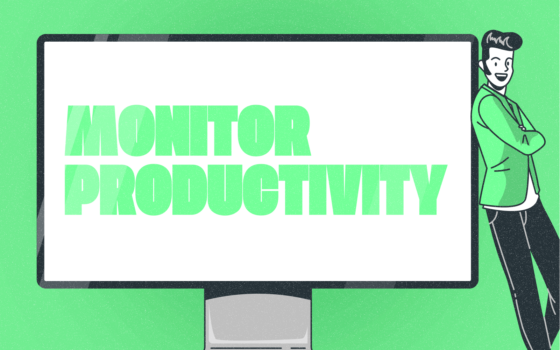Whistleblower Policy
Understanding Whistleblower Policies in the Workplace
In today's corporate landscape, the term "whistleblower" has gained significant prominence. A whistleblower policy is a crucial component of an organization's ethical framework, designed to protect employees who report misconduct, illegal activities, or unethical practices within the company. This comprehensive guide delves into the intricacies of whistleblower policies, their importance, and how they shape the modern workplace.
What is a Whistleblower Policy?
A whistleblower policy is a formal document that outlines the procedures and protections available to employees who report wrongdoing within their organization. It serves as a safeguard for individuals who come forward with information about illegal activities, violations of company policies, or unethical behavior. The policy typically covers various aspects, including the reporting process, confidentiality measures, and protection against retaliation.
The primary purpose of a whistleblower policy is to create a safe environment where employees feel comfortable reporting concerns without fear of reprisal. It encourages transparency, accountability, and ethical behavior within the organization, ultimately contributing to a healthier corporate culture.
Key Components of an Effective Whistleblower Policy
An effective whistleblower policy should encompass several essential elements to ensure its efficacy and credibility. Here are some key components that organizations should consider when developing or revising their whistleblower policies:
1. Clear Reporting Procedures
The policy should outline specific steps for reporting concerns, including multiple channels through which employees can raise issues. These may include hotlines, dedicated email addresses, or designated individuals within the organization responsible for handling whistleblower reports.
2. Confidentiality Assurances
Protecting the identity of whistleblowers is crucial to encourage reporting. The policy should clearly state how confidentiality will be maintained and under what circumstances, if any, the whistleblower's identity may need to be disclosed.
3. Non-Retaliation Clause
A robust non-retaliation clause is essential to protect whistleblowers from adverse actions such as demotions, terminations, or harassment. The policy should explicitly prohibit retaliation and outline consequences for those who engage in retaliatory behavior.
4. Investigation Process
The policy should describe how reports will be investigated, including timelines, responsible parties, and the steps involved in the investigation process. Transparency in this area helps build trust in the system.
5. Communication and Feedback
Outlining how and when whistleblowers will receive updates on the progress and outcome of their reports is important. This helps maintain engagement and demonstrates the organization's commitment to addressing concerns.
6. Training and Awareness
The policy should include provisions for regular training and awareness programs to ensure all employees understand the whistleblowing process and their rights and responsibilities.
Legal Framework Surrounding Whistleblower Policies
Whistleblower policies are not just organizational best practices; they are often mandated by law in many jurisdictions. Understanding the legal landscape is crucial for HR professionals and organizational leaders when developing and implementing these policies.
Sarbanes-Oxley Act (SOX)
In the United States, the Sarbanes-Oxley Act of 2002 was a landmark piece of legislation that significantly impacted whistleblower protections. SOX requires public companies to establish procedures for employees to submit concerns about accounting or auditing matters confidentially and anonymously. It also provides protection for whistleblowers who report violations of securities laws.
Dodd-Frank Wall Street Reform and Consumer Protection Act
The Dodd-Frank Act, enacted in 2010, further strengthened whistleblower protections in the financial sector. It established a whistleblower reward program and expanded the scope of protected disclosures.
EU Whistleblower Directive
In the European Union, the Whistleblower Protection Directive, adopted in 2019, sets minimum standards for protection across all EU member states. It covers a wide range of EU law violations and requires organizations with 50 or more employees to establish internal reporting channels.
These legal frameworks underscore the importance of robust whistleblower policies and the potential consequences for organizations that fail to adequately protect whistleblowers.
Benefits of Implementing a Strong Whistleblower Policy
A well-crafted and effectively implemented whistleblower policy can yield numerous benefits for an organization:
1. Early Detection of Issues
Whistleblower policies encourage employees to report problems early, allowing organizations to address issues before they escalate into major crises or legal troubles.
2. Enhanced Ethical Culture
By promoting transparency and accountability, whistleblower policies contribute to a stronger ethical culture within the organization. This can lead to improved employee morale and a more positive work environment.
3. Risk Mitigation
Effective whistleblowing mechanisms can help organizations identify and mitigate risks before they result in significant financial or reputational damage.
4. Legal Compliance
A robust whistleblower policy ensures compliance with relevant laws and regulations, reducing the risk of legal penalties and fines.
5. Improved Stakeholder Trust
Organizations with strong whistleblower policies often enjoy greater trust from stakeholders, including employees, investors, and customers.
Challenges in Implementing Whistleblower Policies
While the benefits of whistleblower policies are clear, organizations often face challenges in their implementation:
1. Cultural Resistance
In some organizational cultures, there may be resistance to whistleblowing, with it being perceived as disloyal or troubemaking. Overcoming this mindset requires concerted effort and leadership commitment.
2. Fear of Retaliation
Despite legal protections, many employees still fear retaliation for reporting wrongdoing. Building trust in the system is an ongoing challenge for many organizations.
3. Resource Allocation
Implementing and maintaining an effective whistleblower program requires significant resources, including personnel, technology, and ongoing training.
4. Balancing Confidentiality and Transparency
Organizations must strike a delicate balance between protecting whistleblowers' identities and providing sufficient transparency in the investigation process.
5. Managing False or Malicious Reports
Dealing with false or malicious reports can be challenging and may undermine the credibility of the whistleblowing system if not handled properly.
Best Practices for Implementing Whistleblower Policies
To maximize the effectiveness of whistleblower policies, organizations should consider the following best practices:
1. Leadership Commitment
Senior leadership should visibly support and champion the whistleblower policy, setting the tone for the entire organization.
2. Clear Communication
The policy should be clearly communicated to all employees, with regular reminders and updates. This includes making the policy easily accessible and understandable.
3. Multiple Reporting Channels
Provide various ways for employees to report concerns, including anonymous options, to accommodate different comfort levels and situations.
4. Timely and Thorough Investigations
Ensure that all reports are investigated promptly and thoroughly, with appropriate resources allocated to the process.
5. Regular Training
Conduct regular training sessions for employees at all levels to ensure understanding of the policy, reporting procedures, and the importance of speaking up.
6. Continuous Improvement
Regularly review and update the whistleblower policy based on feedback, experiences, and changing legal requirements.
7. Third-Party Involvement
Consider involving third-party providers for managing hotlines or conducting investigations to enhance credibility and independence.
The Role of HR in Whistleblower Policy Implementation
Human Resources plays a pivotal role in the successful implementation and management of whistleblower policies:
Policy Development
HR is often responsible for drafting and revising the whistleblower policy, ensuring it aligns with legal requirements and organizational values.
Training and Communication
HR typically leads efforts to train employees on the policy and communicate its importance throughout the organization.
Investigation Support
While investigations may be conducted by various departments, HR often plays a supporting role, particularly in cases involving personnel issues.
Culture Building
HR is instrumental in fostering a culture where speaking up is encouraged and valued, which is essential for the success of any whistleblower program.
Policy Monitoring and Improvement
HR should continuously monitor the effectiveness of the whistleblower policy and recommend improvements based on feedback and experiences.
The Future of Whistleblower Policies
As the corporate landscape evolves, so too will whistleblower policies. Several trends are likely to shape the future of these policies:
1. Increased Use of Technology
Advanced technologies, including AI and blockchain, may be increasingly used to enhance the security and efficiency of whistleblowing systems.
2. Global Harmonization
As businesses become more global, there may be efforts to harmonize whistleblower protections across different jurisdictions.
3. Expanded Scope
Whistleblower policies may expand to cover a broader range of issues, including environmental concerns and human rights violations.
4. Greater Emphasis on Psychological Safety
Organizations may focus more on creating psychologically safe environments that encourage speaking up as a natural part of organizational culture.
Conclusion
Whistleblower policies are more than just legal requirements; they are essential tools for fostering ethical behavior, mitigating risks, and building trust within organizations. As the business world continues to evolve, the importance of robust whistleblower policies will only grow. By understanding the key components, challenges, and best practices associated with these policies, organizations can create environments where employees feel safe to speak up, ultimately contributing to a more transparent, accountable, and ethical corporate landscape.
In an era where corporate scandals can have far-reaching consequences, effective whistleblower policies serve as a critical line of defense. They not only protect individual employees but also safeguard the long-term interests of the organization and its stakeholders. As such, investing in the development and implementation of strong whistleblower policies should be a priority for any forward-thinking organization committed to ethical business practices and sustainable success.


